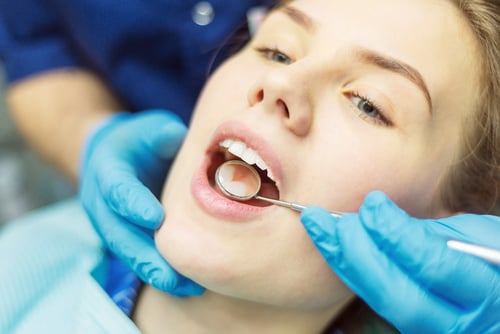Knowing that you have a beautiful smile is one of the best things in the world. However, dirt buildup and tooth decay are big nuisances for both your dental health and wonderful smile. In having tooth decay, a person’s confidence continually decreases, on top of having their oral and dental health put at risk due to worse scenarios that may emerge. So, taking care of your mouth and teeth is as important as having a healthy diet and regular exercise. After all, you can’t eat your food without your important pincers—the teeth.
The health of your teeth can inevitably turn bad, as cavities can invade them due to bacteria, frequent sugar intake, low water consumption, and unhygienic conditions. Therefore, you will always need to seek help from professionals with dental specializations, such as the Arbor Dental Group, your dentist in Westminster, CO, to guide and treat you with certain oral and dental conditions. How would you know if you’ll be having imminent tooth decay? Certainly, you have to watch out for these signs:
Bad, unpleasant breath
Bacteria are the main cause of why people with impending tooth decay experience bad breath. Certain bacteria such as T. denticola, P. intermedia, and Fusobacterium don’t require oxygen to spread all over its host. These types of bacteria turn proteins in the mouth into volatile sulfide compounds (VSC) that produce bad breath like the smell of rotten eggs (hydrogen sulfide).
Bacteria growth can start with the external parts of your teeth, like the outer enamel. Dental plaque and tartar will accumulate in the cavity and, soon, it will dig deeper into internal parts and surfaces that are hard to reach. Decay will eventually increase and speed up once bacteria invades your inner tooth. It will be more difficult to clean these surfaces and will be the root cause of having a foul breath.
While there are various ways to slowly stop and minimize bad breath, it is still advisable not to rely on temporary treatments and consider having a dental service.
Chronic toothaches
Pain receptors in the human teeth are located in the central part of the tooth called the pulp. Toothaches happen when the pulp experiences inflammation, thus pain receptors detect pain and send signals to the brain. One of the biggest signs of cavities is the constant occurrence of toothaches.
People who have a healthy diet but suddenly experience toothaches often don’t know the cause of their pain. Commonly, it is caused by cavity buildup in their teeth. Cavities love to spread and find even the smallest and farthest places to reproduce, which is actually their favorite part. Once the cavity reaches the outer enamel, it will keep burrowing into the dentin, the consecutive layer. After this, it will seek the portion where toothaches originate, which is the tooth’s pulp.
Increased tooth sensitivity
Some people have naturally sensitive teeth. However, for people with low sensitivity, there are instances that eating vanilla-flavored ice cream or hot mushroom soup isn’t the same anymore. Their teeth react sensitively due to the painful sensation of the food’s extreme temperature. Usually, this issue boils down to the presence of cavities.
As previously mentioned, cavity spreads through the teeth layer by layer, and the hollow spaces in the dentin called the microscopic tubules become occupied by the food that causes your sensitivity. Cavities are capable of enlarging these canals to let in a higher amount of hot, cold, acidic, and sweet food pieces into your teeth, thereby causing severe sensitivity.
Tooth staining
Having brown and black spots on your teeth is primarily caused by poor oral hygiene. Plaque and bacteria can be prevented through regular flossing and brushing, and not brushing and flossing enough could cause the plaque to remain for a long time in the teeth. After some time, this plaque will set into a permanent film known as tartar. If your teeth appears to have brown and black stains, it is a noticeable sign of tooth decay.
Additionally, the cracks and spaces between the teeth canal appears to experience more staining as they can be entered by cavities with less difficulty. This will cause your teeth to have poor strength, which is associated with increased sensitivity to sudden temperatures.
Conclusion
If you experience these signs, it is positive that your teeth are rotting. In that case, you should definitely seek for a dental service from dental clinics or your personal dentist. Right before receiving dental services, most patients deal with dental anxiety that might make them think twice for their dental health. However, the fear and stress of having your teeth treated will all be worth it once you take out your rotting teeth and get the best services your dentist can offer.

